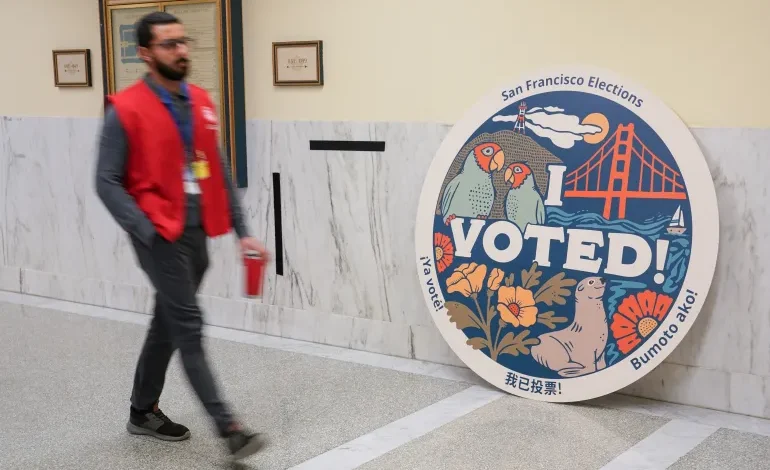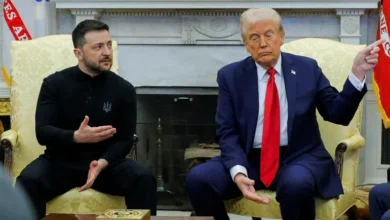Five takeaways from the US Super Tuesday primary races

It was the small races that signalled trouble in the United States’ Super Tuesday elections.
As expected, Republican frontrunner Donald Trump and Democratic incumbent Joe Biden both cruised to easy victories in the vast majority of the night’s primaries — the contests that ultimately decide who receives major party nominations.
But underdog candidate Nikki Haley denied Trump a clean sweep on the Republican side with her victory in the small northeastern state of Vermont, where she resonated with moderate voters.
The result offered a glimmer of hope for Haley, a former United Nations ambassador and South Carolina governor. Haley has long trailed Trump in national and state-level polls. Her victory in Vermont, however, comes on the heels of her win in Sunday’s Republican primary in Washington, DC — two results that may fuel her long-shot campaign to continue chugging along.
Likewise, Biden faced protests at the ballot box over his stance on Israel’s war in Gaza. He also suffered a relatively minor loss in the US territory of American Samoa.
Super Tuesday marks the most pivotal date on the primary calendar, as the day when the most states vote. They included the two most populous — California and Texas — as well as battleground states like Minnesota and Virginia.
As a result, nearly a third of all party delegates for both Democrats and Republicans were up for grabs. While the night’s results were not enough for Trump or Biden to clinch their party’s nominations, they have both made significant strides in reaching the delegate threshold needed. A rematch of their match-up in the 2020 presidential race appears all but certain.
Here are five takeaways from the 2024 Super Tuesday results.
Haley wins big in Vermont
Super Tuesday has long been the bullseye that the Haley campaign has been aiming for.
“That’s as far as I’ve thought, in terms of going forward,” she said during the South Carolina primary, a race in her home state that she ultimately lost.
But she pledged to keep going, and her efforts were rewarded on Super Tuesday with a key symbolic victory in Vermont, a state in the left-leaning New England region.
Her campaign, however, still faces questions about its longevity: Donors like the Americans for Prosperity super PAC stepped away from her presidential bid in the wake of her defeat in South Carolina.
Michael Fauntroy, a political science professor at George Mason University, told Al Jazeera that Haley’s Super Tuesday performance might be less significant as a reflection of her success — and more indicative of the weaknesses Trump faces going into the general election.
“If you look at many of the closely contested swing states that we’ve seen so far, including some tonight, there are roughly 20 percent to maybe even a third of Republican voters in those states who are voting for Nikki Haley,” he said.
“And in a closely contested state like Michigan or Wisconsin, perhaps even North Carolina, if those voters stay home in November or just can’t bring themselves to vote for former President Trump, then former President Trump cannot win those states. And if he can’t win those states, he can’t win the election.”










